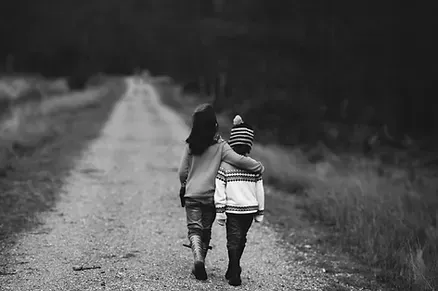
Check Out The Blog

Using Empathy in Music Performance
There are a lot of facets to a performing artist’s job, and a lot of reasons we might choose to take certain gigs - to earn money (I mean, let’s be real), to gain experience, make a new professional connection, build up a resume, etc., etc. The list could go on.
I’d argue, though, that in any performance situation we are in, our job is to connect with our listeners. No matter our reasons for taking the gig, we’re required to use our artistry to offer something meaningful to our audience.
This kind of connection requires a high level of emotional engagement, awareness, and intelligence on our part. Of course, connection is a two-way street, so one would hope that our audiences would bring the same things to their listening. But even if they don’t, we still can, and should.
A huge piece of what this connection requires is empathy - on the parts of both the performer and the audience. And I have a lot of thoughts on empathy. What it is, what it isn’t, what its implications are for us and those around us, how we should channel and express it. So that’s what we’re talking about today.
What is Empathy, Really?
You see a lot of stuff on the Internet these days about empathy, and loads of people who identify as empaths - which, if I’m understanding their interpretation of this trait correctly, means that they feel deeply and absorb the emotions of others. They also talk a lot about the emotional burden of being an empath - constantly absorbing other people’s emotions is exhausting, after all. The way they talk about empathy, you’d think it was some kind of super power, and that all self-identified empaths are emotional martyrs who heroically take on other’s emotional needs at the expense of their own.
You can probably tell just from my tone that I disagree with that. You see, I don’t think empathy is a super power. It is a human virtue - just like patience, compassion, magnanimity, or even-temperedness - that every human should possess, cultivate in themselves, and show toward others. Yes, some have a greater propensity for empathy than others, just like how some people are more patient than others. But here’s the thing: we should ALL be striving to grow in and exercise ALL virtues - not just the ones that come easy to us. If you are a patient person, great. If you are not, that’s something you can work on. It’s the same with empathy. Virtues are not a “you-have-it-or-you-don’t” kind of thing - you can ALWAYS work to cultivate them, no matter your natural propensity for them.
Empathy is simply defined as the ability to understand and share the feelings of another.
That’s it. Understand and share.
The “understand” part is pretty simple. It’s basically allowing yourself to view something from someone else’s perspective - even if that perspective runs contrary to your own, or even if you’ve never experienced what that person is going through. That’s the intellectual, objective part of empathy.
The “share” aspect is a bit trickier. This is where the aforementioned emotional martyrs have gone astray, I think. To me, sharing the feelings of another is to see how their feelings are shaping them in that moment, and express a desire to occupy that space with them. To validate them. To recall, perhaps, a time when you felt the way they do, so as to share in what they are feeling. To be a momentary emotional partner, of sorts.
It does NOT mean that we absorb their feelings or take on emotional burdens that are not ours.
Others’ feelings are not yours to keep or process or act on. You are there in that moment with them as a sharer only. You are not an emotional pack-mule.
When we see someone struggling emotionally, our human compassion wants to see that person happy and whole and healed, and we feel driven to help. But here’s the hard truth: taking on their feelings for them will not heal them. It is not your job to heal them. You can facilitate and support and affirm where appropriate, but they actually have to do the work.
If we are constantly absorbing feelings that are not ours to work through, or taking on burdens that are not meant for us, we are diminishing our capacity to be present to ourselves. And if we’re not present to ourselves, we cannot be present to others in the ways that they truly need.
If you are easily affected by the emotions of others, there are ways you can work on being present to yourself and your own true feelings, regardless of what's going on around you. That is work you should do with a coach or therapist.
It’s not just empaths who struggle with this kind of undue emotional investment. People who are incredibly loyal, or who are endowed with a great sense of responsibility, or who are creative problem-solvers, can also experience this - regardless of their innate levels of empathy.
So I would say that the oft-mentioned “emotional burden” of being an empath is actually not an empath thing - it’s a not-knowing-how-to-set-emotional-boundaries thing. And it’s not heroic - it’s a problem, for you and for others.
This mismanagement of emotional energy can have ripple effects through the different areas of our lives. If you’re an artist, think about it: if you are investing too much emotionally in situations where it isn’t called for, how much emotional bandwidth will you have left to devote to your art?
If you’re thinking to yourself, “ouch!”, I understand. If you feel called out, I also understand.
But if you’re still with me, let’s talk about how empathy plays a role in our artistic lives.
How Should Artists Use Empathy?
Think about the first part of the empathy definition: understanding. As artists, we have a message to communicate to the world. We desire to shed light on something that we feel deserves people’s attention, engagement, and critical thought. Your message is yours to share, and you should share it proudly.
Keep in mind, however, that there are going to be people who don’t agree with your message or appreciate what you stand for. They may even think or feel the opposite of what you believe.
It’s important that we a) accept this and know that we cannot change people; and b) do not judge them for thinking differently from us. Instead, we should seek to understand their point of view, without forcing them to adopt ours. We should share our message, but not bludgeon people over the head with it. That’s not what art is for and it’s certainly not how fruitful dialogue is initiated.
Now think about the second part of the empathy definition: sharing emotions. Remember when I said that we need to be able to share in others’ feelings without those feelings consuming us? That’s really important for artists to be able to do, especially in performance. We need to be able to connect to the emotion we are communicating, to engage with it, to access it, without it overtaking us. We are inviting the audience to empathize with us, to occupy our space for a bit. And to do that in a way that perhaps challenges them but doesn’t burden them, takes real presence of mind and emotional awareness.
Artists, then, have to work on being present to themselves: being aware of how we feel as we sing or play, practicing mindfulness and monitoring where and how we are spending our emotional energy, observing how we are reacting to stimuli, and regulating our nervous systems. We need to be centered and grounded as humans and as musicians.
One final thought about empathy: it only does good if it’s outwardly expressed. It is not enough simply to feel empathy toward someone; it must be shown. Expressing empathy is a skill that all humans should work to cultivate, because it leads to deeper understanding, greater humility, and genuine open-mindedness.





